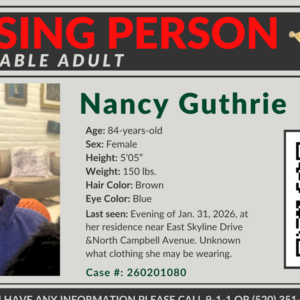Losing a loved one is one of life’s most difficult challenges. The grieving process is unique for each person, involving a wide spectrum of emotions and responses. Some individuals may cry, while others may withdraw, and many struggle to find ways to cope. Among these varied expressions of grief, one common experience is dreaming about those who have passed.
Dreams of deceased loved ones can be profoundly emotional and thought-provoking, often leaving us questioning their significance. Are these dreams simply reflections of our subconscious, or do they carry deeper meanings? Some experts suggest that these dreams, referred to as “visitation dreams,” may assist us in processing grief and finding comfort.
Patrick McNamara, an associate professor of neurology and psychiatry at Boston University, describes visitation dreams as a special type of dream in which the deceased appear alive and well. McNamara notes, “These are dreams where the deceased appear to the bereaved as if they are alive.” After experiencing visitation dreams of his own parents, McNamara began considering the possibility of life after death. He remarked, “If I, someone who studies dreams with a skeptical mindset, could not shake the belief that I had communicated with my deceased parents, how much stronger must the conviction be for someone less skeptical about dreams?”
While McNamara acknowledges that these dreams may feel like spiritual encounters, he also emphasizes their psychological value. Visitation dreams can help individuals process their grief, find peace, and reconnect with memories of their loved ones.

Research has examined visitation dreams in depth. A 2014 study published in the American Journal of Hospice and Palliative Care found that grief-related dreams were frequent and often meaningful, aiding emotional healing. Common themes in these dreams included reliving happy memories, seeing the deceased free from illness, or receiving peaceful messages from the departed.
In another 2016 study, Canadian researchers analyzed the dreams of 76 grieving middle-aged individuals. They discovered that 67.1% of participants felt their dreams strengthened their belief in an afterlife. Furthermore, 70% described their dreams as “visitations,” and 71% reported feeling a deeper bond with their deceased loved ones after experiencing these dreams.
Psychologist Jennifer E. Shorter of the Institute of Transpersonal Psychology also researched visitation dreams. In her study, “Visitation Dreams in Grieving Individuals: A Phenomenological Inquiry into the Relationship Between Dreams and Grief,” Shorter identified four key characteristics of these dreams:
- The deceased appear as they did in life, often healthier or younger.
- The deceased communicate their well-being or peace in their current state.
- Messages from the deceased are often conveyed telepathically rather than verbally.
- These dreams tend to be calm, organized, and leave the dreamer with a sense of tranquility.
Visitation dreams can occur soon after a loss or even years later, often carrying a profound emotional impact. For many, they offer closure, reassurance, or a sense of ongoing connection with their loved ones.
Have you ever dreamed of a loved one who has passed? What significance did it hold for you? These dreams are deeply personal and can have varying meanings depending on the individual. Whether viewed as spiritual messages, psychological coping mechanisms, or expressions of longing and memory, they often leave a lasting impression.
Feel free to share your experiences with visitation dreams in the comments below. If you believe dreams have meaning, consider sharing this article—it could bring comfort to someone navigating their own grief.





